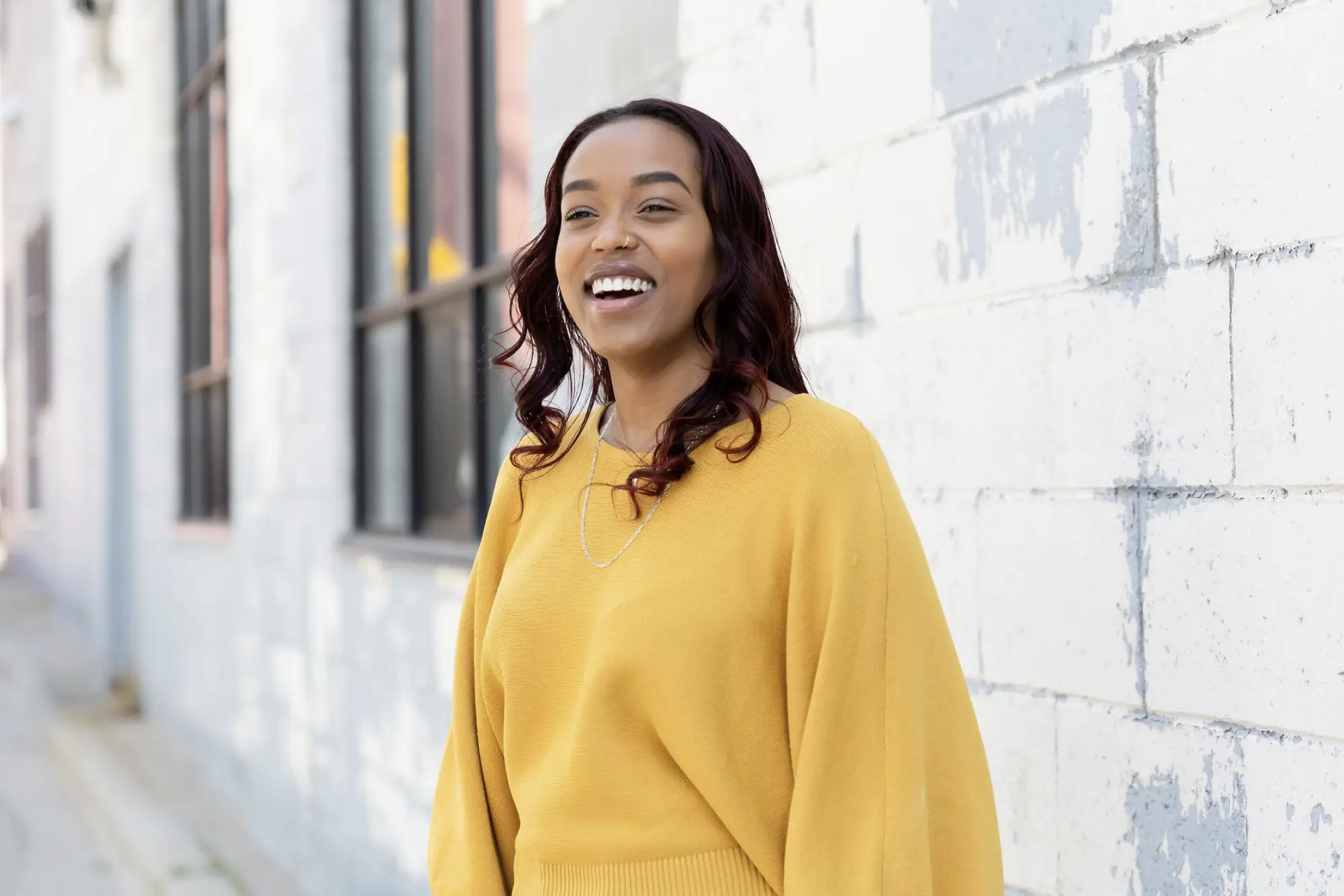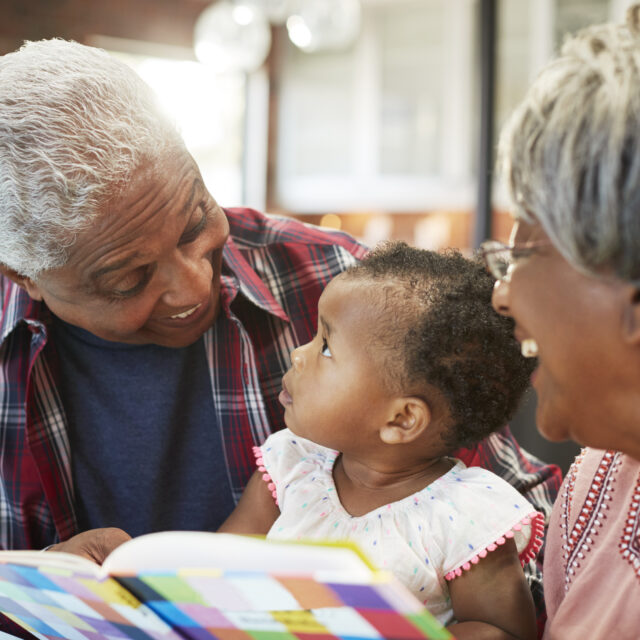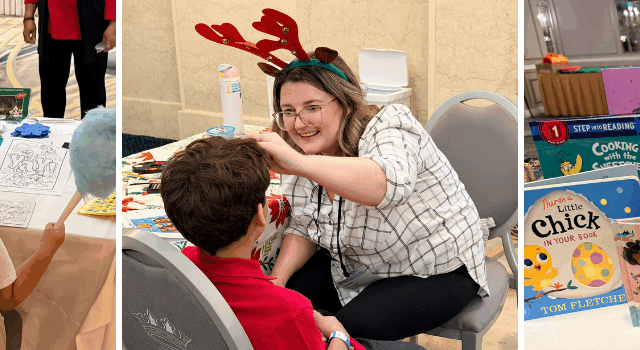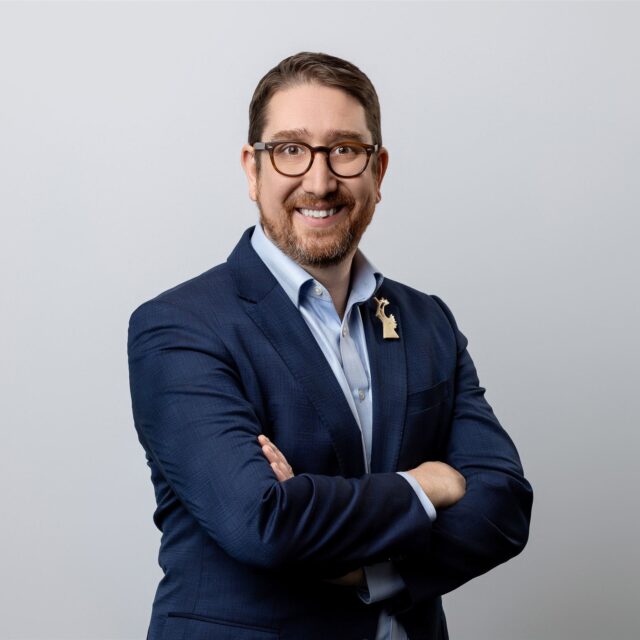KAHLEEN, 23, is a recipient of Children’s Aid Foundation of Canada scholarship and grant funding, which has allowed her to pursue her post-secondary goals. She has also been able to attend camp, the Corsage Project, and various programs that have allowed her to connect to her culture, including cooking classes and a Soul Journey trip. She is currently enrolled at McMaster University studying Health and Society and Aging and Society. She wants to work in long-term care, helping elderly individuals with their aging process and making a difference in her community.
*The opinions and views expressed in this article are that of the youth in profile, and not necessarily reflective of the official opinion or position of Children’s Aid Foundation of Canada.
I used to think for a long time that family was the group of people that you actually came from, that you lived with, that was your actual bloodline. I’ve come to the understanding that family is something that you can make. Family to me are people who try to provide support and help when you need it, even when you don’t ask for it, the people that genuinely want to see good happen for you.
“I actually don’t remember exactly how old I was when I came into care. I do remember that my birthday was a week away. I was supposed to be going on a school trip with the rest of my class, however, my dad didn’t want me to go so he told me to go to my community center, which was across the street from my school at the time. I received a call from a family member that I went to school with and he said that there were police officers at the school looking for me. My principal decided to call my parents, and when he heard what [my dad] had to say, he looked at me and said, ‘you’re not going to be going home.’ I didn’t think that it would get so extreme. It all happened very quickly. I remember that the morning went by very fast and, by the evening, I was sitting in the police station for a very long time. I ended up going into a temporary home for a few nights until they were able to find me a placement where I was able to go.”
“A big challenge was hiding the fact that I was a foster kid because, when I went into care, there was a lot of mystery around what happened. There were police at the school and no one really knew if they would be taking me, or what would happen. I was missing from school for probably about three, maybe four days until everything was actually clear and settled, and I had a home to go to. When I got to the [foster] home, I still couldn’t go back to school [right away] because we wore uniforms and my parents did not want to give me my belongings.”
“My experience in care has been interesting. When I first got into care, I actually knew the family that I would be living with, but I didn’t know that before arriving at their home. Living with [that family] was pretty fun. They made sure at all times that, whether we were foster children or her own children, we were treated the same. I really appreciated that because I didn’t really feel like or notice that I was different for a long time. I also went through a lot of workers during that time period and that was difficult because I didn’t know what to expect with each new person.”
“I did end up moving to another foster home. When the day approached, I had all my stuff packed. A worker came from the Children’s Aid office and she looked at me as I sat in the car and said, ‘we’re going to a [new city].’ Then she closed my door and we drove off. I was terrified, I was hysterical. I remember crying. I didn’t want to sleep. I didn’t want to eat. I got to this new [foster] house and I did not know what to do or how to feel. I feel like maybe the beginning of my experience in living in a [foster] home was better because I was familiar with the neighbourhood I grew up in, I didn’t have to be uprooted too much from my routine. But when I got moved, I didn’t even know that was where I was going. I found out while we were driving there and I was so terrified.”
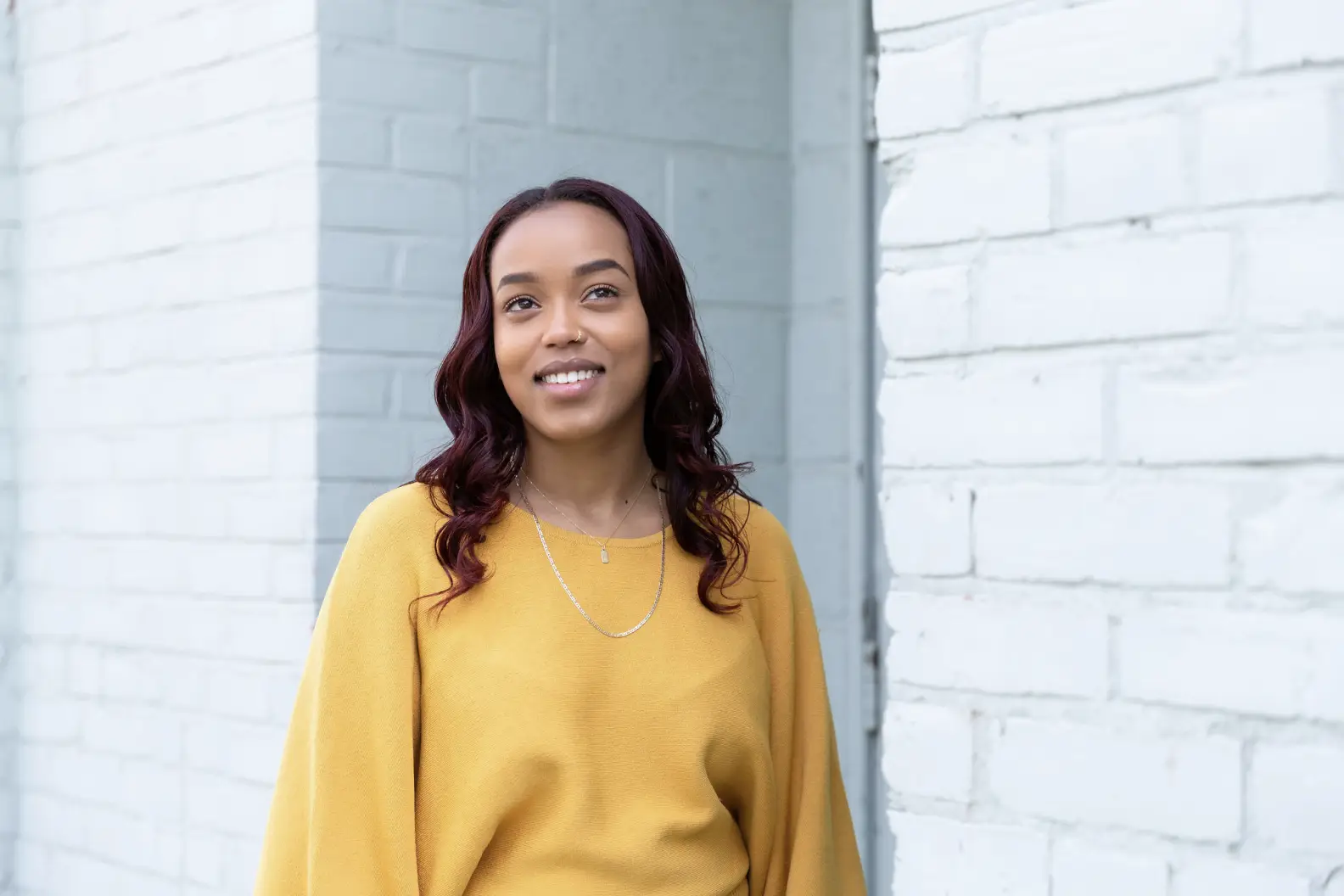
“When I got to that [foster] home, [I was] not speaking. I lashed out, tried to be late for curfew on purpose because I wanted to give them a hard time. Eventually, I got into the groove of school, but that took a while because when I got to the new foster home, there wasn’t a discussion about what school I would be going to. And I didn’t think that school would have to be a big issue or something that I would have had to fight for. But I was placed from the public school board into a Catholic school board. I had never been to a Catholic school before, and I was told, ‘okay here is your uniform, this is where you’re going now.’ Nobody asked my opinion about anything, about moving here, about going to school. I was very frustrated.”
“I thought graduating from high school would be so exciting for me, because it’s something that I’ve always worked hard towards. Growing up, my parents would say very mean things to my siblings and I that were not motivating, that we wouldn’t finish school and we wouldn’t end up finding a good job, things like that. That would be very frustrating to hear. As the time started to approach, it didn’t really feel like something I would be celebrating. It made me more nervous because at this point I knew that I couldn’t be in foster care anymore, that after I turned 18 I would have to move out or figure out what happens next [on my own].”
“[Something that was really exciting was that] I got to go to the Corsage Project and got my dress [for prom]. I got to spend a whole day going through dresses talking about my makeup, trying on shoes, meeting other people. It was a really fun day, I was happy to find my dress and find a nice colour. It was really good for my self-esteem.”
“I was always a good kid in school, I always did really well, would always have really good grades. I kept hearing everyone say, ‘you need to start applying to college and university.’ I wasn’t really sure what I wanted to do, but I played a lot of sports so I got some ideas from a few friends that I [played] rugby, basketball, and volleyball with. I found out about McMaster and the programs that they had and that they had a particular rugby team that did really well. So that’s where I ended up wanting to go. I remember applying and I was really nervous because I didn’t know what would actually happen next because I’d never had a sibling or a family friend that went to university, and I was a part of that process and that process was new for me.”
“I would say a combination of school and athletics [is what got me to where I am today]. And the little connections that I was able to make with people through camp and the people that I’d meet when I was travelling for sports, [like coaches, parents and other athletes]. They would give me little words of wisdom. Those little connections that I was able to make with people helped because then I could form my own version community that I could take with me everywhere.”
“I found out about Children’s Aid Foundation of Canada through a worker; she was telling me about different opportunities that would help me with school. She told me about the website, how to go through the forms for scholarships and bursaries to see if I could possibly get funding to go to school in September.”
“I would like to thank those who’ve donated [to the Foundation] because it does have an impact. It’s very hard to find people who do not know you and that are very accepting of your situation and that want to help you as your own family should. I am very thankful for that because they have provided very many opportunities.”
Support young people like KAHLEEN in achieving their full potential.
